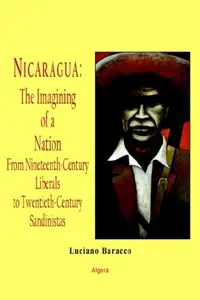
Free Download Luciano Baracco, "Nicaragua - The Imagining Of A Nation - From Nineteenth-Century Liberals To Twentieth-Century Sandinistas"
English | 2005 | pages: 188 | ISBN: 0875863922, 0875863930 | PDF | 1,4 mb
Nicaragua: The Imagining of a Nation is geared to students and academics of nationalism studies, history, and Latin American studies. Analyzing Nicaragua s post-colonial history, the author studies the Sandinista Revolution in the context of Nicaragua s ongoing efforts at nation-building. Baracco identifies the origins of the Sandinista Revolution in terms of the failure of nineteenth-century liberal regimes to complete the task of constructing Nicaragua as a culturally and historically distinct, sovereign, national entity.
The book is based on research of various sources from the archives of the Instituto de Historia de Nicaragua y Centroamerica, Central American University Managua, and on interview evidence taken from leading figures from within the Sandinista government (1979-90).
At the nexus of politics, sociology, development studies, nationalism studies and Latin American studies, this work takes Nicaragua as a case study to engage and advance Benedict Anderson s ideas on the origins and spread of nationalism and illustrates his theories on nations as imagined political communities.
The empirical application of these ideas to national literacy campaigns and popular nationalist literature illustrates how nationalism has worked in Nicaragua on a routinized and daily basis, and shows how the Sandinistas attempted to complete a process of nation building that had been initiated in the previous century, yet had remained an unfinished task largely due to the successive interventions of the United States in the political and economic affairs of Nicaragua. It also illustrates how Sandinista nationalism departed from its nineteenth-century Liberal version, by re-imagining the nation in terms of an anti-imperialist political identity that would serve the revolutionary government s developmental objectives.
The book offers insights into the evolution of states in post-colonial Latin America and their struggle to strike an acceptable balance between sovereignty issues and the imperatives of global politics.
